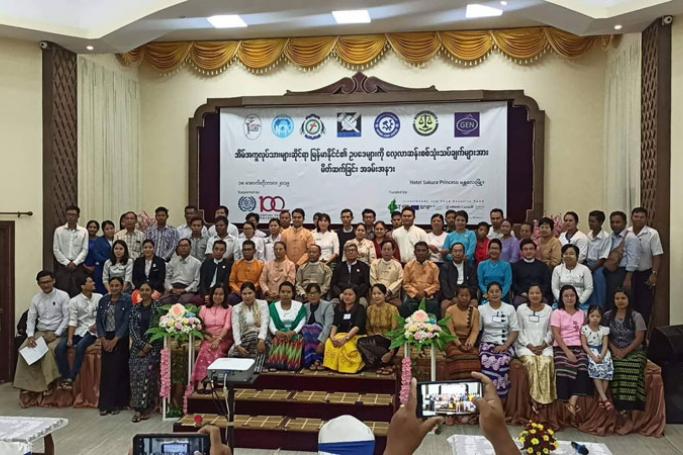It is learned that responsible officials will be urged to draft and enact a specific law for domestic workers to give them equal rights to other workers.
Nay Win Naing from Fifth Pillar Organization which helps domestic workers said, “In reality, the domestic workers do not get any rights granted by law. Moreover they cannot enjoy the right to a minimum wage of 4,800 kyat per day since the Minimum Wage Act is not applicable for work which employs less than ten workers.”
He said these words at a ceremony for the introduction to the housemaid related laws and review and analysis on them held at Hotel Sakura Princess in Mandalay on October 18 organized by the Legal Aid and Protection Team for Domestic Workers.
“As for every worker, working hours, leave and holiday are primary issues. All these rights are guaranteed by the Holiday and Leave Act. The domestic workers have no holiday, no leave and they have to work unlimited working hours. There is no regulation for their working hours. They have to work from morning till night round the year all 365 days. These issues should be rectified,” Nay Win Naing added.
The responsible officials from this organization of Fifth Pillar and Legal Remedy said that they compiled this paper on review and analysis of laws related to domestic workers in comparison of Myanmar Laws and international norms specified in the ILO Convention 189 Recommendation 201 on decent work for domestic workers adopted in 2011 to give them equal rights as other workers.
The officials said in this ceremony that they would continue urging for the drafting and enacting of specific law for domestic workers based on the compilation made by them and required facts and data compiled from the Philippines, South Africa and other countries.
The organizations working for domestic workers issued statements which say that since there is no specific law for domestic workers, these workers are facing exploitation, persecution and also they are working in hazardous working environments.












